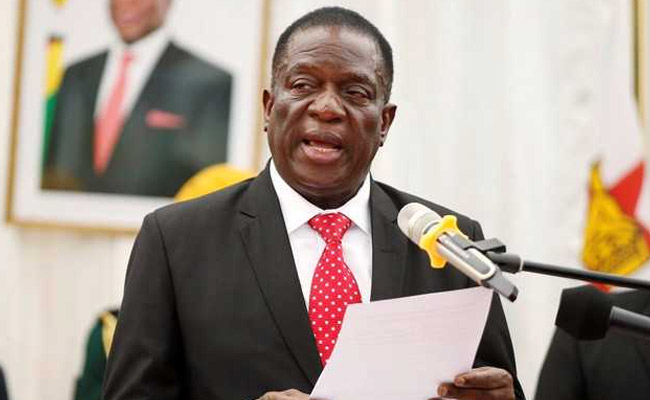Zimbabwe’s President Emmerson Mnangagwa addressed a crowd of white voters on Saturday in an attempt improve relations ahead of a July 30 election, a marked shift from his predecessor Robert Mugabe whose policies became increasingly racially divisive.
Mnangagwa, who came to power when Mugabe was removed in a de facto coup in November, is on the campaign trail ahead of what is expected to be a tight contest with his main rival, Nelson Chamisa, the 40-year-old leader of the Movement for Democratic Change (MDC).
The white Zimbabweans who are left in the country – estimated at around 30,000 – would usually vote MDC or for another opposition party, given the strained relationship with Mnangagwa’s ruling ZANU-PF.
But Mnangagwa, a 75-year-old former Mugabe ally, has pledged to fix racial divisions and end the violent seizure of white-owned commercial farms, a policy that Mugabe said was intended to redress post-colonial imbalances.
Many farms ended up in the hands of powerful politicians, soldiers or local chiefs and fell into disrepair.
“I know of some chiefs who have moved from one farm to another. Then they run it down. Then he leaves that farm and he is issued another one. He runs it down.
That time is gone,” Mnangagwa told a crowd of several hundred white Zimbabweans in Borrowdale, a wealthy suburb in the capital Harare.
Mnangagwa is hoping to revive a once promising economy, end chronic cash shortages and bring down soaring unemployment. In order to do this he needs the help of Western donors who want to see the issue of white-owned land addressed.
Many of the white Zimbabweans in the albeit partisan crowd saw Mnangagwa’s fig leaf as a major turning point.
“He’s recognising everyone as the same. We’re all one now, which is beautiful,” said mining engineer Cais Carstens.
“This has never happened before, so it’s good.”
Opponents dismissed the event as a publicity stunt backed by people with political and financial interests.
“I’m not surprised. You have to look at where this took place,” said David Coltart, an MDC senator.
“There are some very wealthy whites there who have long established connections with ZANU. It’ll be the community who have business connections.”
Source: Reuters



